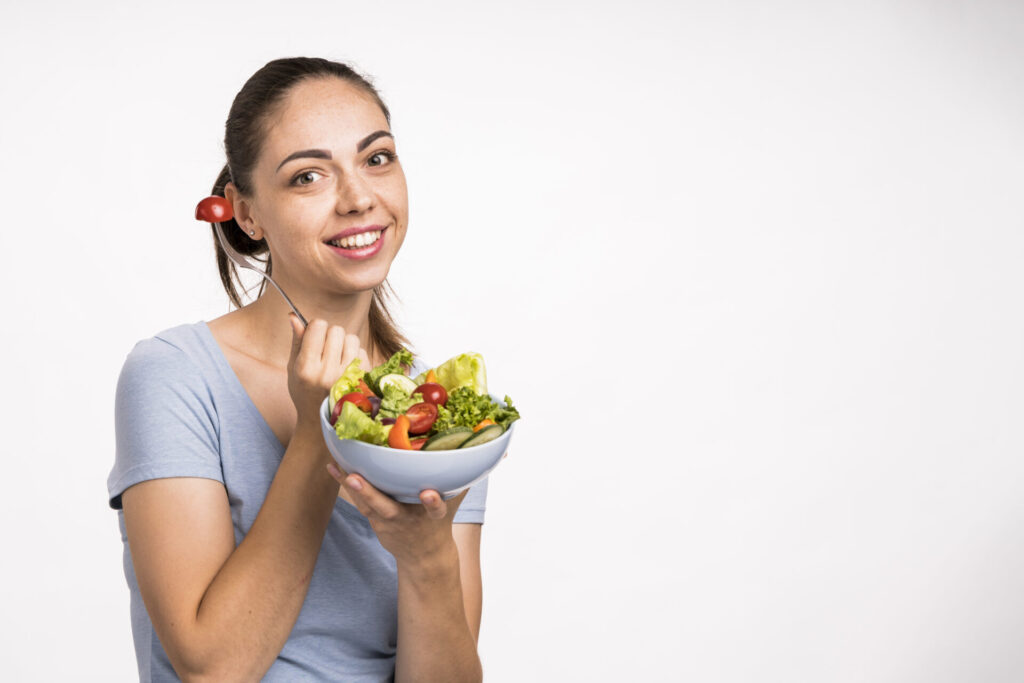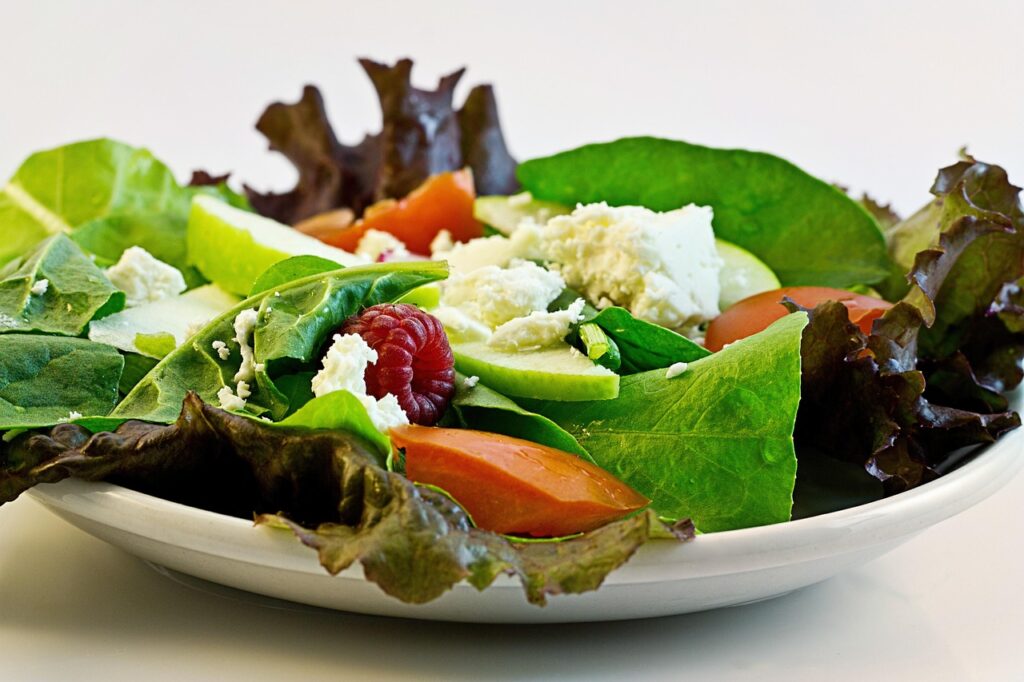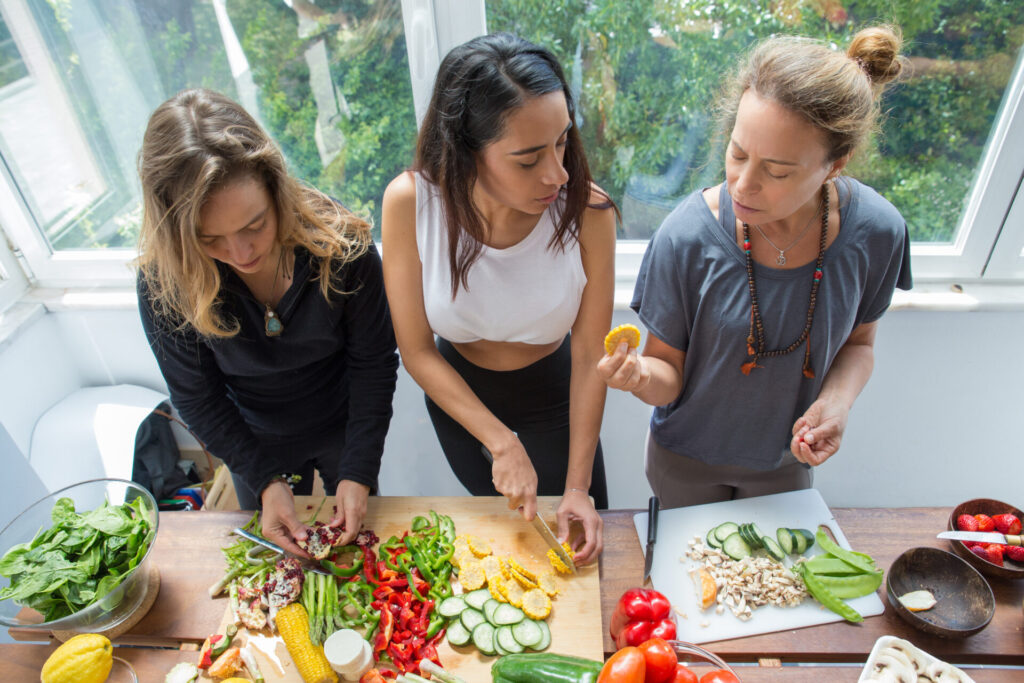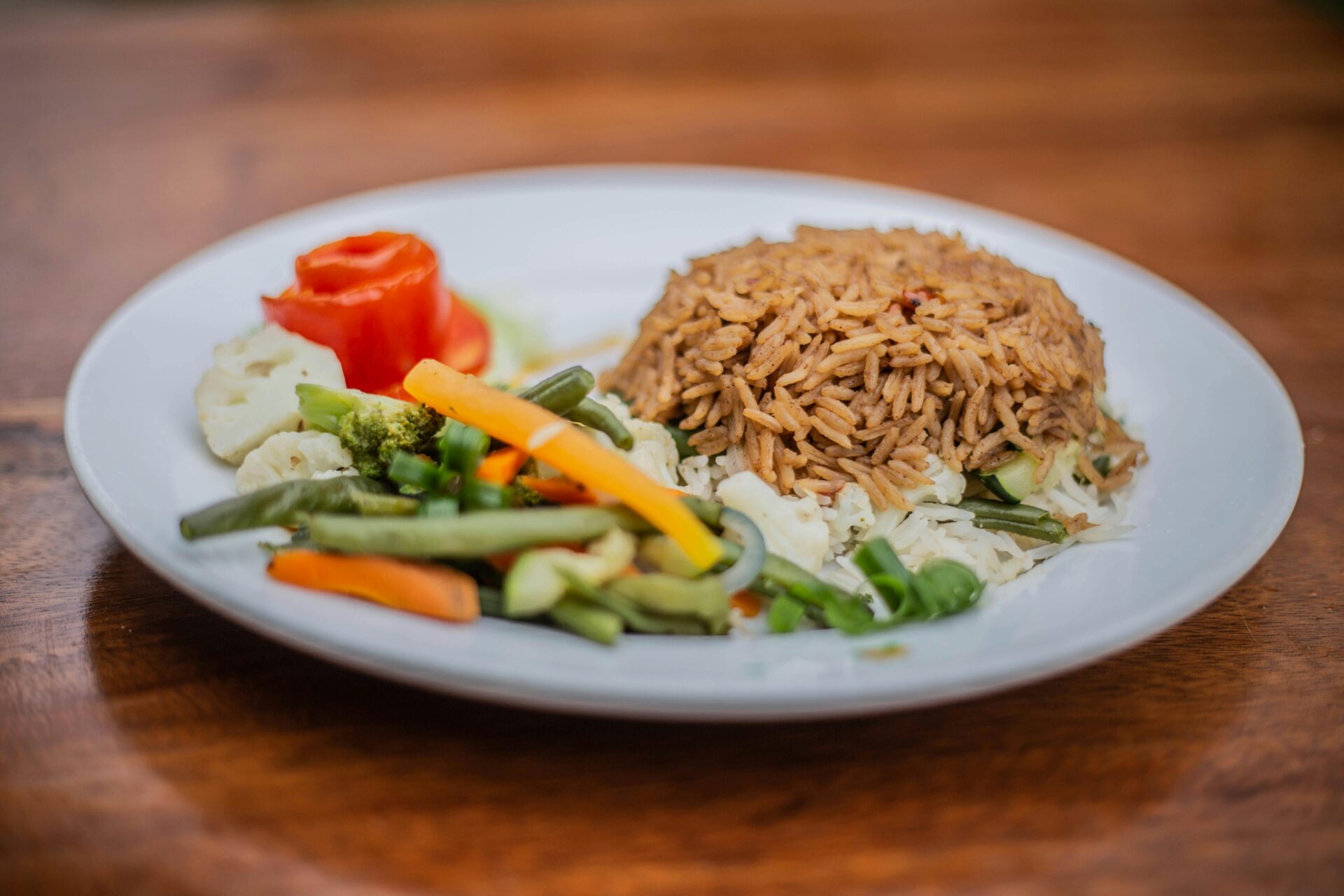How to Start a Vegetarian Diet: A Complete Beginner’s Journey to Health, Energy, and Mindful Living
Contents
- 1 How to Start a Vegetarian Diet: A Complete Beginner’s Journey to Health, Energy, and Mindful Living
- 1.0.0.0.0.1 Read DISCLAIMER
- 1.0.0.0.0.2 The material presented here is for general informational and educational purposes only and is not medical advice. Although we attempt to provide current and accurate information, this blog should not be used as a replacement for professional medical consultation, diagnosis, or treatment. In all cases, consult your physician or an accredited medical practitioner with regards to any medical condition or treatment. Do not ignore professional medical advice or wait for it on the basis of information provided by this blog. In a medical emergency, call emergency services immediately.
- 1.1 Understanding What It Really Means to Go Vegetarian
- 1.2 Why People Choose to Start a Vegetarian Diet
- 1.3 The Mindset Shift: From Restriction to Exploration
- 1.4 Planning Your Vegetarian Diet for Balance and Energy
- 1.5 The First Steps: How to Transition Smoothly
- 1.6 The Emotional Side of Going Vegetarian
- 1.7 Dining Out and Social Situations
- 1.8 Common Challenges and How to Overcome Them
- 1.9 The Joy of Cooking Vegetarian
- 1.10 Long-Term Benefits of a Vegetarian Lifestyle
- 1.11 Staying Inspired on Your Journey
- 1.12 Final Thoughts: Your Vegetarian Story Begins Today
- 1.13 FAQs with Answers
Learn how to start a vegetarian diet with simple steps, meal ideas, and nutrition tips to stay healthy, balanced, and energized every day.
Read DISCLAIMER
The material presented here is for general informational and educational purposes only and is not medical advice. Although we attempt to provide current and accurate information, this blog should not be used as a replacement for professional medical consultation, diagnosis, or treatment. In all cases, consult your physician or an accredited medical practitioner with regards to any medical condition or treatment. Do not ignore professional medical advice or wait for it on the basis of information provided by this blog. In a medical emergency, call emergency services immediately.
Shifting to a vegetarian diet is not just about changing the food on your plate; it’s about reshaping your relationship with your body, your health, and even your values. For many people, this transition comes from a spark — a desire to feel lighter, healthier, more energized, or even more compassionate toward animals and the planet. But at the same time, beginning a vegetarian diet can feel overwhelming. Questions like “Will I get enough protein?” or “What do I even eat if I cut out meat?” can leave you unsure of where to start.
The good news? Starting a vegetarian lifestyle doesn’t have to be complicated, restrictive, or intimidating. With the right mindset, knowledge, and a bit of preparation, you can make the transition smooth, enjoyable, and deeply rewarding. This guide will walk you through everything you need to know: from understanding what vegetarianism really means to overcoming challenges and building a balanced, satisfying way of eating that can last for a lifetime.
Understanding What It Really Means to Go Vegetarian
A vegetarian diet isn’t simply “removing meat.” It’s a holistic approach to food where you build meals around plants, grains, legumes, nuts, seeds, fruits, and vegetables. For some people, it’s also a deeply personal choice tied to ethics, spirituality, or environmental consciousness.
There are different forms of vegetarianism, and knowing which one feels right for you is a great first step. Some people choose a lacto-vegetarian diet, which includes dairy but avoids eggs and meat. Others follow ovo-vegetarian, including eggs but avoiding dairy. Then there’s lacto-ovo vegetarianism, which allows both dairy and eggs while avoiding meat and fish. Each variation still aligns with the central principle: no consumption of animal flesh.
The beauty of vegetarianism is its flexibility. You don’t need to conform to a rigid set of rules. Instead, it’s about discovering what works for your health, preferences, and values while still ensuring your diet is nourishing and complete.

Why People Choose to Start a Vegetarian Diet
For many, the choice to go vegetarian begins with health. Research has shown plant-based diets can support heart health, reduce the risk of chronic diseases, and promote healthy weight management. But the motivation isn’t always physical.
Some people are inspired by environmental concerns, recognizing that shifting toward plant-based eating reduces carbon footprints and preserves natural resources. Others are motivated by compassion, choosing to avoid contributing to animal suffering. For many, it’s a combination of all three: health, planet, and ethics.
What’s powerful is that no matter your “why,” your body and mind can benefit in ways you may not expect. People often describe feeling lighter, more energetic, and even more mentally clear after reducing meat and focusing on whole, plant-based foods.
The Mindset Shift: From Restriction to Exploration
One of the biggest mistakes beginners make is approaching vegetarianism as a diet of restriction — focusing on what they can’t eat. This mindset often leads to frustration and burnout. Instead, think of this journey as an exploration.
Imagine walking into a global market filled with vibrant produce, exotic spices, colorful grains, and unique legumes. Vegetarianism invites you to rediscover food in its most natural, diverse form. It’s not about losing options; it’s about expanding your horizons.
When you begin exploring cuisines around the world — from Mediterranean dishes rich in olive oil and vegetables to Indian meals full of lentils, beans, and spices — you quickly realize vegetarianism is not about limits. It’s about endless possibilities.
Planning Your Vegetarian Diet for Balance and Energy
A healthy vegetarian diet goes beyond cutting out meat; it’s about building meals that nourish your body completely. One of the most common concerns beginners face is whether they’ll get enough protein. The truth is, protein exists in a wide variety of plant-based foods. Lentils, chickpeas, tofu, beans, tempeh, quinoa, nuts, and seeds are all excellent sources.
Equally important are vitamins and minerals. Iron, vitamin B12, calcium, omega-3 fatty acids, and zinc deserve attention. For example, spinach and lentils provide plant-based iron, but pairing them with vitamin C-rich foods like oranges or bell peppers helps with absorption. Dairy or fortified plant milks provide calcium, while flaxseeds, chia seeds, and walnuts offer omega-3s.
You don’t need to obsess over each nutrient, but awareness helps you avoid gaps. Think of your plate as a colorful palette: leafy greens for minerals, legumes for protein, whole grains for sustained energy, and fruits for antioxidants. Diversity is your best ally.

The First Steps: How to Transition Smoothly
When people decide to “go vegetarian overnight,” the sudden shift can feel jarring. Instead, give yourself permission to transition gradually. You might begin with “Meatless Mondays,” exploring new vegetarian recipes once a week. From there, increase to two or three meat-free days until you naturally begin preferring plant-based meals.
Another approach is replacing one food group at a time. For instance, swap beef with lentils in tacos, or use mushrooms instead of chicken in stir-fries. Gradually experimenting allows your taste buds and cooking skills to adapt without the pressure of perfection.
The most important thing is consistency, not speed. Whether you make the switch in a week, a month, or over several months, progress matters more than pace.
The Emotional Side of Going Vegetarian
Food is never just physical; it’s deeply emotional and cultural. Many people worry about missing family traditions or favorite comfort foods. The key is not to deny those feelings but to honor them in new ways.
For instance, if Sunday dinners with your family always centered around roast chicken, try creating a hearty vegetarian centerpiece — like a stuffed butternut squash or lentil loaf. You might be surprised how fulfilling these meals feel once you add your creativity and intention.
Cravings are also normal during the transition. They often stem from familiarity rather than actual nutritional needs. When a craving hits, explore a plant-based version of your favorite dish. Whether it’s spaghetti with lentil “meatballs” or burgers made from black beans, you can recreate flavors and textures you love.
Dining Out and Social Situations
One common challenge beginners face is eating out or attending social gatherings. The worry of being the “difficult one” at the table can feel intimidating. But with a little preparation, it’s easier than you think.
Many restaurants now offer vegetarian options, but even if they don’t, most chefs are happy to customize dishes. Before going out, scan the menu online so you already have ideas. When attending a potluck or party, bring a dish you love — not only does it ensure you have something to eat, but it also introduces others to how delicious vegetarian food can be.
Over time, you’ll realize that being vegetarian is not about isolating yourself; it’s about inspiring curiosity. Friends may even ask you for recipes once they see how flavorful and satisfying your meals are.
Common Challenges and How to Overcome Them
Every journey has bumps along the road. One of the biggest is the fear of nutritional deficiencies. This can be avoided with mindful eating and, if necessary, supplements for nutrients like vitamin B12.
Another challenge is handling questions or even criticism from others. Some people may not understand your choice or may jokingly ask, “But where do you get your protein?” Respond with confidence and kindness. Sometimes, your own calm explanation sparks curiosity rather than debate.
The initial adjustment period may also include moments of doubt, especially if old habits feel comforting. Remind yourself why you started. Journaling your progress or noting positive changes in energy, mood, or digestion can help you stay motivated.

The Joy of Cooking Vegetarian
Learning to cook vegetarian meals is one of the most empowering parts of this journey. Instead of relying on convenience foods or repetitive salads, you can craft nourishing dishes that excite you.
Experiment with international cuisines. For instance, Mediterranean meals feature vibrant vegetables and olive oil, Indian dishes highlight lentils and spices, while East Asian cuisines make abundant use of tofu and stir-fried vegetables. Each culture offers endless inspiration.
Cooking also becomes a mindful practice. Washing vegetables, simmering soups, and creating meals with intention can turn dinner into more than fuel — it becomes an act of care for yourself and your loved ones.
Long-Term Benefits of a Vegetarian Lifestyle
As you settle into a vegetarian diet, you’ll begin to notice changes that extend beyond your plate. Physically, many people report improved digestion, clearer skin, and more stable energy levels. Long term, vegetarianism has been linked to a reduced risk of obesity, type 2 diabetes, and heart disease.
But the benefits are not only physical. Mentally, living in alignment with your values can bring a sense of peace and purpose. Spiritually, some people describe feeling more connected to nature and mindful about their daily choices.
It’s not about perfection but about building a lifestyle that feels authentic, nourishing, and sustainable.
Staying Inspired on Your Journey
The vegetarian journey is a lifelong exploration. To stay inspired, keep trying new recipes, experiment with seasonal produce, and connect with like-minded communities. Surrounding yourself with support, whether through friends, social media groups, or cooking classes, keeps the journey fun and exciting.
Remember, it’s normal for your diet to evolve over time. Some days you’ll eat gourmet plant-based meals, while other days you’ll keep it simple with rice and beans. Flexibility and curiosity will keep you grounded.
Final Thoughts: Your Vegetarian Story Begins Today
Starting a vegetarian diet is not a destination; it’s a journey of discovery, compassion, and health. It’s about learning how to listen to your body, nurture your spirit, and explore the vast, flavorful world of plant-based foods.
When you take that first step, know that you’re not just changing what’s on your plate — you’re beginning a story of resilience, growth, and conscious living. And like every great story, it unfolds one meal, one choice, and one mindful moment at a time.
Your vegetarian journey begins today, and it has the power to transform not only your health but also your relationship with food, your values, and the world around you.
FAQs with Answers
- What is the first step in starting a vegetarian diet?
The first step is understanding your “why.” Whether it’s for health, environment, or ethics, clarity will help you stay consistent. Begin by reducing meat gradually, replacing it with protein-rich plant foods. - How do I make sure I get enough protein on a vegetarian diet?
You can meet your protein needs with beans, lentils, tofu, tempeh, quinoa, nuts, and seeds. Combining different sources ensures you get all essential amino acids. - Is a vegetarian diet safe for children and teens?
Yes, a vegetarian diet can be safe and healthy for children and teens as long as it includes a variety of nutrient-dense foods like whole grains, legumes, fruits, vegetables, and fortified dairy or alternatives. - Can I lose weight on a vegetarian diet?
Many people do lose weight because plant foods are naturally lower in calories and higher in fiber, which keeps you full longer. However, it depends on food choices, as processed vegetarian snacks can still lead to weight gain. - How do I avoid nutrient deficiencies when going vegetarian?
Plan meals with a variety of vegetables, whole grains, legumes, nuts, and seeds. Focus on nutrients like vitamin B12, iron, omega-3 fatty acids, calcium, and vitamin D, which may require fortified foods or supplements. - Do vegetarians need supplements?
Not always, but many vegetarians benefit from vitamin B12 supplements, and sometimes vitamin D, iron, or omega-3 depending on dietary intake and lifestyle. - Can I still eat out at restaurants as a vegetarian?
Yes, many restaurants now offer vegetarian options. You can also customize meals by requesting extra vegetables, legumes, or dairy substitutes instead of meat. - What’s the difference between a vegetarian and vegan diet?
A vegetarian diet excludes meat, poultry, and fish but often includes dairy and eggs, while a vegan diet excludes all animal-derived foods including dairy, eggs, and honey. - How do I deal with cravings for meat?
Cravings are common in the beginning. Try plant-based meat substitutes, experiment with spices, or focus on hearty meals like bean stews, lentil curries, and tofu stir-fries that feel satisfying. - Is it expensive to follow a vegetarian diet?
It can actually be more affordable, since staples like beans, lentils, rice, oats, and seasonal vegetables often cost less than meat and fish. - How do I create a balanced vegetarian meal plan?
Think of your plate as balanced portions: half vegetables and fruits, one-quarter whole grains, and one-quarter plant proteins, with healthy fats like olive oil, nuts, or seeds. - Can I build muscle on a vegetarian diet?
Yes, with proper planning. Focus on high-protein foods like lentils, tofu, tempeh, Greek yogurt, cottage cheese, quinoa, and plant-based protein powders if needed. - What snacks are good for new vegetarians?
Snacks like hummus with veggies, roasted chickpeas, fruit with nut butter, yogurt with granola, or trail mix are easy, filling, and nutrient-rich. - Will I feel tired when I first switch to a vegetarian diet?
Some people feel a dip in energy during the transition due to lower iron or B12 intake. With proper planning and fortified foods, your energy should return and even improve. - Can I try vegetarianism part-time before going fully vegetarian?
Absolutely. Many people ease into it with “Meatless Mondays” or by making one meal a day vegetarian. Gradual transition helps your body adjust and makes it easier to sustain long-term.

Solid analysis! Seeing more platforms like happy bunny club emerge in the Philippines is great for players – security & variety are key, especially with those verification steps they outline. Interesting times for online gaming!
Interesting points about bankroll management! Seeing platforms like happy bunny apk emphasize secure registration-vital for peace of mind when playing. Good article overall! 👍
**mind vault**
mind vault is a premium cognitive support formula created for adults 45+. It’s thoughtfully designed to help maintain clear thinking
**sugarmute**
sugarmute is a science-guided nutritional supplement created to help maintain balanced blood sugar while supporting steady energy and mental clarity.
**gl pro**
gl pro is a natural dietary supplement designed to promote balanced blood sugar levels and curb sugar cravings.
**vitta burn**
vitta burn is a liquid dietary supplement formulated to support healthy weight reduction by increasing metabolic rate, reducing hunger, and promoting fat loss.
**prodentim**
prodentim an advanced probiotic formulation designed to support exceptional oral hygiene while fortifying teeth and gums.
**glucore**
glucore is a nutritional supplement that is given to patients daily to assist in maintaining healthy blood sugar and metabolic rates.
**prostadine**
prostadine is a next-generation prostate support formula designed to help maintain, restore, and enhance optimal male prostate performance.
**sleeplean**
sleeplean is a US-trusted, naturally focused nighttime support formula that helps your body burn fat while you rest.
**synaptigen**
synaptigen is a next-generation brain support supplement that blends natural nootropics, adaptogens
**nitric boost**
nitric boost is a dietary formula crafted to enhance vitality and promote overall well-being.
**wildgut**
wildgutis a precision-crafted nutritional blend designed to nurture your dog’s digestive tract.
**mitolyn**
mitolyn a nature-inspired supplement crafted to elevate metabolic activity and support sustainable weight management.
**zencortex**
zencortex contains only the natural ingredients that are effective in supporting incredible hearing naturally.
**yu sleep**
yusleep is a gentle, nano-enhanced nightly blend designed to help you drift off quickly, stay asleep longer, and wake feeling clear.
**breathe**
breathe is a plant-powered tincture crafted to promote lung performance and enhance your breathing quality.
**pineal xt**
pinealxt is a revolutionary supplement that promotes proper pineal gland function and energy levels to support healthy body function.
**energeia**
energeia is the first and only recipe that targets the root cause of stubborn belly fat and Deadly visceral fat.
**prostabliss**
prostabliss is a carefully developed dietary formula aimed at nurturing prostate vitality and improving urinary comfort.
**boostaro**
boostaro is a specially crafted dietary supplement for men who want to elevate their overall health and vitality.
**potent stream**
potent stream is engineered to promote prostate well-being by counteracting the residue that can build up from hard-water minerals within the urinary tract.
**hepatoburn**
hepatoburn is a premium nutritional formula designed to enhance liver function, boost metabolism, and support natural fat breakdown.
**hepatoburn**
hepatoburn is a potent, plant-based formula created to promote optimal liver performance and naturally stimulate fat-burning mechanisms.
**flowforce max**
flowforce max delivers a forward-thinking, plant-focused way to support prostate health—while also helping maintain everyday energy, libido, and overall vitality.
**prodentim**
prodentim is a forward-thinking oral wellness blend crafted to nurture and maintain a balanced mouth microbiome.
**cellufend**
cellufend is a natural supplement developed to support balanced blood sugar levels through a blend of botanical extracts and essential nutrients.
**neurogenica**
neurogenica is a dietary supplement formulated to support nerve health and ease discomfort associated with neuropathy.
**revitag**
revitag is a daily skin-support formula created to promote a healthy complexion and visibly diminish the appearance of skin tags.
Clarte Nexive se demarque comme une plateforme d’investissement crypto de pointe, qui utilise la puissance de l’intelligence artificielle pour offrir a ses utilisateurs des avantages concurrentiels decisifs.
Son IA etudie les marches financiers en temps reel, identifie les opportunites et applique des tactiques complexes avec une precision et une vitesse inatteignables pour les traders humains, maximisant ainsi les potentiels de rendement.
Tried out taigoo88 and I gotta say, I was impressed. The bonuses are pretty sweet and the selection of games is solid. I’ll be back for sure. You should too: taigoo88
Hey all, just wanted to drop a line about ae888land. Been having some good luck on their live casino games. Give them a spin! You can find them here: ae888land
Used bong88org for a bit. It’s not bad, easy enough to use. Check it here and have fun: bong88org
Càng tham gia lâu dài và tích cực, người tham gia sẽ càng được hưởng những ưu đãi lớn hơn. 868vip Các thành viên VIP của nhà cái thường nhận được phần quà đặc biệt, tỷ lệ hoàn tiền cao hơn, cả những ưu đãi cá nhân hóa như quản lý tài khoản riêng, hỗ trợ ưu tiên cùng nhiều quyền lợi khác. TONY01-16
Bạn có thể đặt giới hạn thua/ngày tại nhận thưởng 188v – hệ thống sẽ tự động khóa cược khi đạt ngưỡng, giúp bạn kiểm soát cảm xúc và tránh rủi ro tài chính. TONY01-16